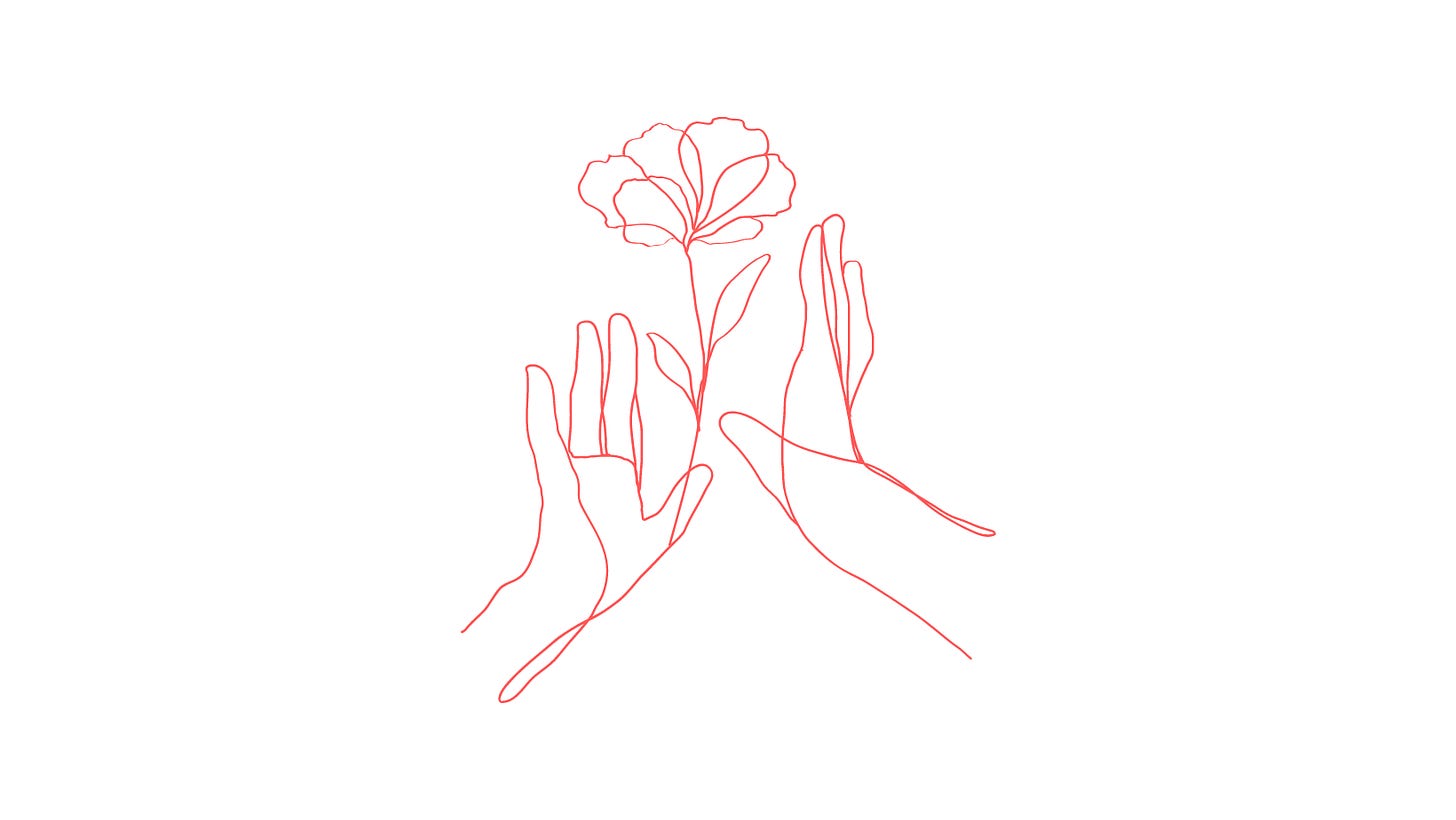Money Follows Values
Or, a really quick interpretation of one particular part of "Proposals for the Feminine Economy"
Something interesting happened in my life over the past 24 hours—a good, longtime friend of mine who now lives in Milan with her Italian husband send me a Whatsapp message with a link to the 12 Principles for Prototyping a Feminist Business, and my business coach mailed me the book Proposals for the Feminine Economy. These two women don’t know each other at all, as far as I know. They’ve never spoken or connected online. But within the same 24 hour timespan, they both sent me content from the same author who writes about feminist business principles and a feminine economy.
When I messaged my expat friend about the coincidence, she wrote back, “The universe needs you to get this message my friend!!”
And like, shit. She’s not wrong.
I read the book in about 45 minutes (it’s an easy breezy read, but poignant) and what was cool was that the author outlined several big aspects of business that I, myself, have been trying to embody since I started down this path of entrepreneurship last year. While there are a lot of specific things I’d like to get to, there is one that I want to focus on for today’s email:
Money Follows Value
This idea is something the author, Jennifer Armbrust, writes about in the context of the 12 Principles (which she notes are drawn from/inspired by Peter Levine’s “Twelve-Phase Healing Trauma Program” from his book Healing Trauma: A Pioneering Program for Restoring the Wisdom of Your Body).
She writes:
Collectively, we have been valuing masculine traits for so long it feels like the natural order. But it hasn’t always been this way.
Money follows value. Or, said another way, money follows our values. As a culture, we have been placing high value on masculine traits. . .
. . .we have been devaluing feminine characteristics for so long that they have little worth in the marketplace. (And also, women have been giving it away for free!)
Want money to flow toward the feminine? Start valuing feminine principles, not just intellectually, but in practice. . .
. . .We can own our power of abundance and become conscious stewards of wealth. We can experiment with redistributions of power and resources, using our businesses to prototype the world we want to live in.
For reference, the author describes the prototype for a feminist economy as embodying the following characteristics:
abundance consciousness
resourcefulness
mindfulness
gratitude
integrity
honesty
connecting with nature
empathy
care
asking questions
sustainability
intimacy
embodiment
generosity
ease
collaboration
interdependence
cyclical growth
Well holy shit my friends, that sounds like a therapist economy, now doesn’t it?
What I read in Armbrust’s book—the way I interpret it—is not that we are to reject money or wealth, but that money can be used as a tool to invest in the types business and individuals who embody values we wish to see in the world. It’s a tool that we can use to more effectively redistribute power and resources (resources which include money) to create a world that we so desperately want to live in.
It’s through the monetary support of business that embrace these characteristics, AND by creating practices/business where we also embody and promote these characteristics, that we can redistribute essential resources into our own lives, into the lives of those we love, and into the communities we inhabit. We can refuse to participate in and reinforce systems that over-emphasize the value of masculine/patriarchal traits and that under-value the feminine. We can use these resources to boost the type of economy we’d actually want to take part in.
So when I talk about money and fees and all that shit while running a therapy practice, it’s not from the stance of aggressive and linear growth without regard for the consequences; it’s from a stance of placing HIGH value on the work we do—the work that, by it’s very nature, is the expression of feminist principles, regardless of your gender or what sex you were assigned at birth.
So, naturally, part of this starts to circle around the idea of making money as a therapist. It’s a spicy subject for sure (at least 🌶🌶🌶🌶 on a scale of 🌶🌶🌶🌶🌶). I won’t dive too much more into it today, but I will leave you with some questions to consider your reactions to the idea of making a thriving wage as a therapist (that is, all that you need plus extra):
What types of attitudes do you have about people who are wealthy?
What types of values do you think rich/wealthy people have?
What types of attitudes do you have about therapists who are wealthy?
What types of values do you think rich/wealthy therapists have?
What important characteristics, morals, or values do you fear you might lose if you were to see an increase in your own wealth?
Living in a feminist economy, where would you most like to see your financial overflow reinvested? What organizations, causes, communities, or individual people would you most like to support through your abundance?
How could increased wealth be an opportunity to invest further in your own healing, or the healing of those around you?
How could increased wealth make it easier for you to live your values?
Alright, that’s all. I’m gonna go eat some leftovers and watch Stranger Things.
-meg



Great questions!
Just when I thought I couldn’t love this post any more, you go and throw Stranger Things into the mix! I give this 🌶🌶🌶🌶🌶 plus a 🚲